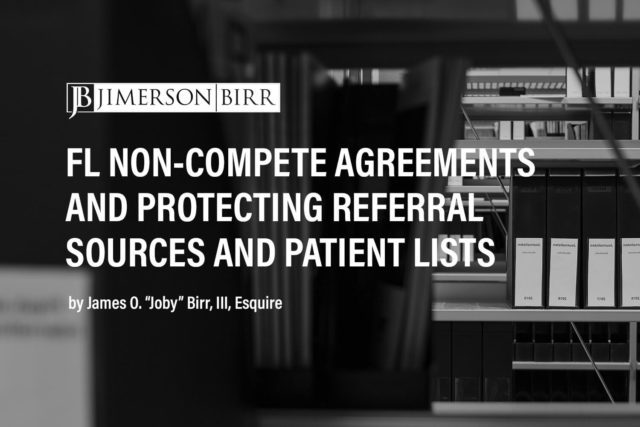What does IP due diligence and auditing encompass?
IP due diligence and auditing evaluate the ownership, value, and risks of IP assets in a transactional or business setting. In Florida, IP due diligence involves assessing IP rights’ strength, scope, and enforceability in patent, trademark, copyrights, and trade secret matters. In contrast, IP auditing evaluates the internal management and commercialization of IP assets to identify areas of improvement and potential risks.
For example, a Florida company may perform IP due diligence in mergers or acquisitions to ensure the target company has valid and enforceable IP rights. The process may involve analyzing the target’s IP portfolio, licensing agreements, and litigation history under Florida and federal law.
Need an intellectual property advocate? Schedule your consultation today with a top intellectual property protection attorney.
Which laws and regulations apply to IP due diligence and auditing in Florida?
Several Florida and federal laws and regulations govern IP due diligence and auditing. Florida-specific IP laws include the Florida Uniform Trade Secrets Act, which protects trade secrets, and Chapter 495 of the Florida Statutes, which addresses trademarks and service marks.
Federal IP laws include the Lanham Act governing trademarks, the Patent Act covering patents, and the Copyright Act governing copyrights. Regulations from the United States Patent and Trademark Office and the United States Copyright Office further clarify and implement these federal laws.
In addition to these specific IP laws and regulations, other Florida and federal statutes, such as contract and antitrust law, may be relevant to IP due diligence and auditing. Properly navigating these legal frameworks is crucial to ensure that IP rights are adequately protected and managed in a transaction or business context.
What are the strategic benefits of implementing IP due diligence and auditing?
Effective navigation of intellectual property law enables the following for businesses:
- Risk mitigation: Conducting IP due diligence and auditing helps businesses identify potential risks, such as ownership disputes or infringement claims, allowing them to address these issues proactively. Proper due diligence can avoid costly legal conflicts and protect a company’s reputation.
- Informed decision-making: Assessing the value and enforceability of IP assets can inform strategic decisions, such as mergers and acquisitions, licensing, and product development. By understanding the IP landscape, businesses can make better decisions to maximize profits and minimize risks.
- IP portfolio optimization: Regular IP auditing allows companies to identify underutilized assets and opportunities for commercialization or licensing. It also helps determine which IP rights should be maintained, strengthened, or abandoned, leading to a more efficient and valuable IP portfolio.
- Compliance with laws and regulations: IP due diligence and auditing help ensure compliance with relevant Florida and federal laws. Compliance reduces the likelihood of legal disputes and potential penalties.
- Improved negotiation position: A thorough understanding of a company’s IP assets and their value can leverage negotiations, whether in licensing deals, joint ventures, or acquisition discussions. An accurate valuation of IP assets helps businesses negotiate more favorable terms.
When a set of facts is appropriate for legal intervention, there are many paths a claimant may take. We are value-based attorneys at Jimerson Birr, which means we look at each action with our clients from the point of view of costs and benefits while reducing liability. Then, based on our client’s objectives, we chart a path to seek appropriate remedies.
To determine whether your unique situation may necessitate litigation or another form of specialized advocacy, please contact our office to set up your initial consultation.
What steps should counsel take to handle IP due diligence and auditing?
Counsel should consider the following to protect their clients:
- Identify and categorize IP assets: Counsel should begin by identifying all relevant IP assets, including patents, trademarks, copyrights, and trade secrets. They should also assess any licensing agreements, assignments, and third-party contracts related to these assets.
- Evaluate the strength and enforceability of IP assets: Counsel should review the legal status of each IP asset to determine its enforceability by analyzing the validity of patents, trademark registrations, and copyright claims and evaluating the measures taken to protect trade secrets.
- Assess potential risks and liabilities: Counsel should identify any potential risks or liabilities associated with the IP assets, such as ongoing litigation, ownership disputes, or infringement claims. They should also review any indemnification provisions in licensing agreements or other contracts.
- Analyze the commercial potential of IP assets: Counsel should evaluate the market potential of each IP asset, considering factors such as market size, competition, and potential revenue streams. This analysis can help determine the value of the IP assets and inform strategic decision-making.
- Review internal IP management practices: Counsel should assess the company’s internal IP management practices, such as policies and procedures for protecting trade secrets, maintaining IP records, and tracking licensing agreements. Identifying areas for improvement can help ensure the company’s IP assets are effectively managed and protected.
- Develop a plan to address identified issues and optimize the IP portfolio: Based on the results of the due diligence and auditing process, counsel should develop a comprehensive plan to address any identified issues, strengthen the IP portfolio, and capitalize on commercial opportunities. This plan may include pursuing additional IP protection, negotiating new licensing agreements, or divesting underutilized assets.
Please contact our office to set up your initial consultation to see what forms of intellectual property protection may be available for your unique situation.
Frequently Asked Questions
- What is IP due diligence?
IP due diligence is the process of reviewing a company’s IP assets to identify and assess their associated risks. The due diligence results can help a company make informed decisions about the company’s IP strategy, such as whether to file for patents, trademarks, or copyrights.
- Why is IP due diligence essential?
IP is a valuable asset for any company. It can give a company a competitive advantage, protect its brand, and generate revenue. However, IP can also be vulnerable to infringement. By conducting IP due diligence, companies can identify and mitigate the risks associated with their IP assets.
- What is an IP audit?
An IP audit is a process for verifying the accuracy and completeness of a company’s IP records. The audit results help identify gaps in the company’s IP protection, such as unregistered trademarks or copyrights.
Have more questions about how intellectual property protection could impact your business?
Crucially, this overview of IP due diligence and auditing does not begin to cover all the laws implicated by this issue or the factors that may compel the application of such laws. Every case is unique, and the laws can produce different outcomes depending on the individual circumstances.
Jimerson Birr attorneys guide our clients to help make informed decisions while ensuring their rights are respected and protected. Our lawyers are highly trained and experienced in the nuances of the law, so they can accurately interpret statutes and case law and holistically prepare individuals or companies for their legal endeavors. Through this intense personal investment and advocacy, our lawyers will help resolve the issue’s complicated legal problems efficiently and effectively.
Having a Jimerson Birr attorney on your side means securing a team of seasoned, multi-dimensional, cross-functional legal professionals. Whether it is a transaction, an operational issue, a regulatory challenge, or a contested legal predicament that may require court intervention, we remain tireless advocates at every step. Being a value-added law firm means putting the client at the forefront of everything we do. We use our experience to help our clients navigate even the most complex problems and come out the other side triumphant.
If you want to understand your case, the merits of your claim or defense, potential monetary awards, or the amount of exposure you face, you should speak with a qualified Jimerson Birr lawyer. Our experienced team of attorneys is here to help. Call Jimerson Birr at (904) 389-0050 or use the contact form to schedule a consultation.

We live by our 7 Superior Service Commitments
- Conferring Client-Defined Value
- Efficient and Cost-Effective
- Accessibility
- Delivering an Experience While Delivering Results
- Meaningful and Enduring Partnership
- Exceptional Communication Based Upon Listening
- Accountability to Goals











